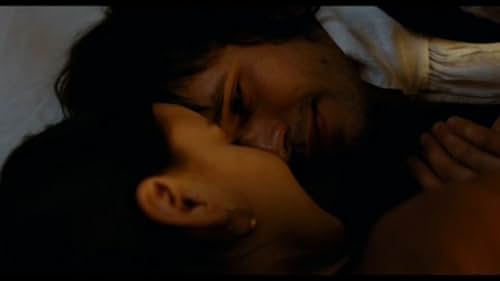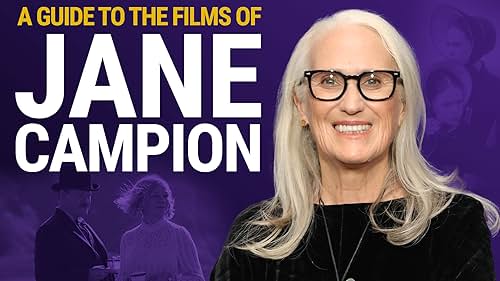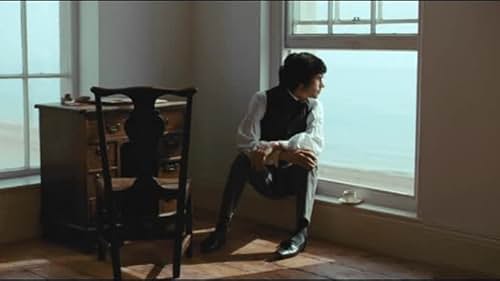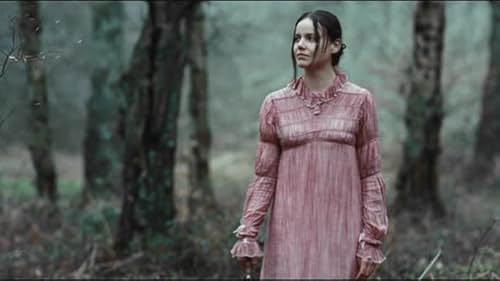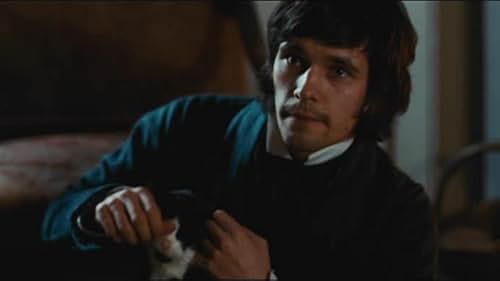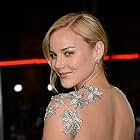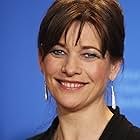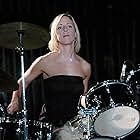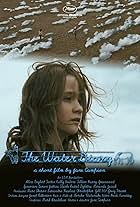CALIFICACIÓN DE IMDb
6.9/10
29 k
TU CALIFICACIÓN
El romance de tres años entre el poeta del siglo XIX John Keats y Fanny Brawne cerca del final de su vida.El romance de tres años entre el poeta del siglo XIX John Keats y Fanny Brawne cerca del final de su vida.El romance de tres años entre el poeta del siglo XIX John Keats y Fanny Brawne cerca del final de su vida.
- Dirección
- Guionistas
- Elenco
- Nominado a 1 premio Óscar
- 16 premios ganados y 54 nominaciones en total
Opiniones destacadas
Keats's romance with Fanny Brawne and final days are brought to lovely life in Jane Campion's new film, Bright Star. He had TB, though it's never named. When he had become very ill, they sent him to Rome. How foolish! Its climate isn't healthy, though it might have seemed so compared to Hampstead. The house where Keats lived in Hampstead for two years and was in love with Fanny Brawne and wrote some of his has just been restored.
Campion's film may not be a deep investigation of poetical genius, but it's delicate and alive and infinitely touching. There's a delightful litte rosy-cheeked girl, and good use is made of cats. The handsome Regency house was then divided into two, one side occupied by Keats and his landlord and possessive companion Charles Brown, the other by a family called Brawne. He fell in love with Fanny Brawne, and she with him. She is creative in her own way, a brilliant seamstress and designer of clothing who was inventive with fabrics. She didn't know much about poetry but to go by the film, she crammed the classics to be able to talk to Keats and read all his poems and memorized many passages. They recite them back and forth to each other, which may be artificial, but you don't mind, because the poetry is their love, it bloomed through their love and expresses it. Until he began coughing blood and ceased to write because he was suddenly too ill, Keats wrote some of his best work in Hampstead, in love with Fanny Brwwne.
They express their love in long sweet kisses, and walking hand in hand. This too is artificial but a fitting symbolic expression of the ecstasy and swoons of romantic poetry.
Sometimes the final credits define the experience of a film and of its audience. You have to love a film over whose final credits the wispy, winsome Whishaw is heard softly reading the whole of the Ode to a Nightingale, right to the end, and you have to respect an audience in an American cineplex when many of its members sit still to hear Keats's masterpiece down to the final words, "Was it a vision, or a waking dream?/ Fled is that music: – Do I wake or sleep?" Can you imagine having known a person with such extravagant gifts? Campion doesn't get too much in the way of our own imagining. She just lets it happen, lets the cats wander in and out, and thus captures the sine curve of romantic experience, its extremes of joy and despair that are so poignantly focused in the life of this penniless English boy who died at twenty-five, thinking himself a failure, and left behind some of the finest poetry in the language.
Abbie Cornish plays Fanny, Ben Wishaw John Keats, Paul Schneider plays Charles Brown. The little rosy-cheeked sister, Margaret "Toots" Brawne, is played by Edie Martin. Brown is the villain of the piece, because he jealously guards Keants from Fanny, whom he thinks is a silly girl who only sews and flirts. He's getting in the way of romantic love! And Schneider can't help but seem obtrusive here. Brown redeems himself later when, having gotten the sweet Irish servant girl Abigail (Antonia Campbell-Hughes) with child, he does the right thing and marries her.
Fanny's mother says she can't marry Keats, because he has no money, but he proposes, and she accepts, and when the liebestod begins, there's no way of denying his happiness or Fanny's, or the sadness and devotion that made her wear the gold engagement band for the rest of her life. Campion's film offers no profound insights into the poetic process. But how can it? Though Fanny asks Keats to give her "lessons" in poetry, its appreciation, like its creation, must be instinctive and cannot be explained, particularly not the ethereal romantic kind. Wishaw's delicate and enigmatic quality is a satisfying image to hang our fantasies on.
Campion's film may not be a deep investigation of poetical genius, but it's delicate and alive and infinitely touching. There's a delightful litte rosy-cheeked girl, and good use is made of cats. The handsome Regency house was then divided into two, one side occupied by Keats and his landlord and possessive companion Charles Brown, the other by a family called Brawne. He fell in love with Fanny Brawne, and she with him. She is creative in her own way, a brilliant seamstress and designer of clothing who was inventive with fabrics. She didn't know much about poetry but to go by the film, she crammed the classics to be able to talk to Keats and read all his poems and memorized many passages. They recite them back and forth to each other, which may be artificial, but you don't mind, because the poetry is their love, it bloomed through their love and expresses it. Until he began coughing blood and ceased to write because he was suddenly too ill, Keats wrote some of his best work in Hampstead, in love with Fanny Brwwne.
They express their love in long sweet kisses, and walking hand in hand. This too is artificial but a fitting symbolic expression of the ecstasy and swoons of romantic poetry.
Sometimes the final credits define the experience of a film and of its audience. You have to love a film over whose final credits the wispy, winsome Whishaw is heard softly reading the whole of the Ode to a Nightingale, right to the end, and you have to respect an audience in an American cineplex when many of its members sit still to hear Keats's masterpiece down to the final words, "Was it a vision, or a waking dream?/ Fled is that music: – Do I wake or sleep?" Can you imagine having known a person with such extravagant gifts? Campion doesn't get too much in the way of our own imagining. She just lets it happen, lets the cats wander in and out, and thus captures the sine curve of romantic experience, its extremes of joy and despair that are so poignantly focused in the life of this penniless English boy who died at twenty-five, thinking himself a failure, and left behind some of the finest poetry in the language.
Abbie Cornish plays Fanny, Ben Wishaw John Keats, Paul Schneider plays Charles Brown. The little rosy-cheeked sister, Margaret "Toots" Brawne, is played by Edie Martin. Brown is the villain of the piece, because he jealously guards Keants from Fanny, whom he thinks is a silly girl who only sews and flirts. He's getting in the way of romantic love! And Schneider can't help but seem obtrusive here. Brown redeems himself later when, having gotten the sweet Irish servant girl Abigail (Antonia Campbell-Hughes) with child, he does the right thing and marries her.
Fanny's mother says she can't marry Keats, because he has no money, but he proposes, and she accepts, and when the liebestod begins, there's no way of denying his happiness or Fanny's, or the sadness and devotion that made her wear the gold engagement band for the rest of her life. Campion's film offers no profound insights into the poetic process. But how can it? Though Fanny asks Keats to give her "lessons" in poetry, its appreciation, like its creation, must be instinctive and cannot be explained, particularly not the ethereal romantic kind. Wishaw's delicate and enigmatic quality is a satisfying image to hang our fantasies on.
When a director handles with English writers' biographies, it is easy to fall into the clichè, when one deals with the biography of a romantic English poet, it could be still easier to fall into the manneristic-romantic, and the risk of disappointment is always lurking. Although I have a strong feeling for this kind of movies, in a way that whenever a shot on some English countryside appears, I could lose my sense of reality, I can objectively say that the fore-mentioned risk is totally and thankfully absent in "Bright Star", which on the contrary stands out for its sober and delicate handling of the short life of John Keats and of his deep love for Fanny Brown. It's through Fanny's eyes we get to know Keats' inner world and poetry, the verbal beauty of his poems, full of pathos, inner longing for life and death, passionate, whereas their love story remains almost platonic, fixed on a perfect level, where nothing can contaminate their deep communion. And still Jane Campion has the merit not to heat up their story, and to depict subtle, almost evanescent moments of their encounters. Very intense interpretations are offered by the two leading actors, but I would say that every character has a precise and significant meaning inside the movie. Easily to be perceived as a slow picture, Jane Campion gets to convey through a movie, which requires motion in itself, the slowness required by poetry. Poetry , writing, love require time, patience, and silence. The silent moments between Keats and Fanny are as intense and evocative as when they recite poetry, even the discrete, silent presence of Fanny's brother makes a sense. Wonderful, to say the least, the shots with Fanny lying on a lavender field, and the one with butterflies inside her room: truly ravishing.
"Bright Star" is not only one of the best films of the year, but also Jane Campion's return to top form. Possibly the most acclaimed female director of her time, thanks to early strong and praised works such as "Sweetie" (1989), "An Angel At My Table" (1990) and particularly "The Piano" (1993), the truth is that Campion hasn't had a real critical or commercial success since... "The Piano". "The Portrait of a Lady" (1996), her adaptation of the Henry James novel, had a stellar cast, but was almost universally ignored; "Holy Smoke!" (1999), with Kate Winslet and Harvey Keitel, had its moments, but failed to impress anybody; and "In the Cut" (2003) was easily her worst film (but far from a disaster). The fact that Campion managed to remain such a respected name all these years even though not being the most prolific or successful filmmaker proves how influential and fascinating she is. She became some sort of figure for all the major female filmmakers from the past two decades and developed a very personal style marked by strong female sexuality (often, repressed), told with visual lyricism. She may be considered a feminist, but not the obviously preachy type, because her work flows like good cinema, and not as a heavy-handed gender discussion.
"Bright Star" is a tragic love story, beautifully directed, acted, photographed and written. Is it a revolutionary or innovative film? No. But the power of its lyricism and unabridged romanticism is infinitely touching. Anyone familiar with 19th century poet John Keats knows that he died of tuberculosis at 25 (and this is no major spoiler, since it's mentioned in every synopsis of the film), so we know the love birds are not going to live happily ever after. Campion centers on the three-year romance between Keats (a discreet and charming Ben Whishaw) and Fanny Brawne (Abbie Cornish, magnificent); their passion and the issues that prevented them from being together. Whishaw fits Keats' shoes perfectly, even if he might seem a little too low key at times. Paul Schneider ("All the Real Girls"), who's becoming one of the great American character actors, plays the villain as Charles Armitage Brown, Keats' friend who will do whatever he can to keep him away from Fanny. Kerry Fox ("Shallow Grave", "Intimacy"), unforgettable as Janet Frame in Campion's "An Angel At My Table", plays Mrs. Brawne, and Edie Martin is simply adorable as Fanny's little sister Toots. But this is Abbie Cornish's show all the way. This 27 year-old Australian first impressed me opposite Heath Ledger in 2006's "Candy", and here she shows her full potential. Her Fanny is simply incandescent - a terrific performance that could culminate in Oscar glory. For all romantics and admirers of good cinema, "Bright Star" is what Keats himself would call 'a thing of beauty... a joy forever' - intoxicatingly beautiful. 10/10.
"Bright Star" is a tragic love story, beautifully directed, acted, photographed and written. Is it a revolutionary or innovative film? No. But the power of its lyricism and unabridged romanticism is infinitely touching. Anyone familiar with 19th century poet John Keats knows that he died of tuberculosis at 25 (and this is no major spoiler, since it's mentioned in every synopsis of the film), so we know the love birds are not going to live happily ever after. Campion centers on the three-year romance between Keats (a discreet and charming Ben Whishaw) and Fanny Brawne (Abbie Cornish, magnificent); their passion and the issues that prevented them from being together. Whishaw fits Keats' shoes perfectly, even if he might seem a little too low key at times. Paul Schneider ("All the Real Girls"), who's becoming one of the great American character actors, plays the villain as Charles Armitage Brown, Keats' friend who will do whatever he can to keep him away from Fanny. Kerry Fox ("Shallow Grave", "Intimacy"), unforgettable as Janet Frame in Campion's "An Angel At My Table", plays Mrs. Brawne, and Edie Martin is simply adorable as Fanny's little sister Toots. But this is Abbie Cornish's show all the way. This 27 year-old Australian first impressed me opposite Heath Ledger in 2006's "Candy", and here she shows her full potential. Her Fanny is simply incandescent - a terrific performance that could culminate in Oscar glory. For all romantics and admirers of good cinema, "Bright Star" is what Keats himself would call 'a thing of beauty... a joy forever' - intoxicatingly beautiful. 10/10.
When watching Jane Campion's affectionate account of the final months of John Keats's brief life I could not but ponder on the precariousness of human existence even at such relatively short time ago as the early years of the nineteenth century. Ahead were those advances in medical science that certainly have enabled this octogenarian to watch several hundred wonderful films rather than a small handful. It is the ephemeral nature of experience that tugs at the heartstrings, a romance with everything going for it, cut short because a cure now available simply was not there. "Bright Star" lovingly conveys the "carpe diem" of the all too brief relationship of the young poet with his very near neighbour, Fanny Brawne. Ben Whishaw and Abbie Cornish instinctively express the emotions of an affair they know to be all too short in a way that reminds that great romantic cinema is far from dead. As if this were not enough, Campion's work is terrific on period detail. A shot very near the beginning depicting a Hampstead village landscape with white sheets of washing flapping in the foreground is breathtakingly beautiful. And this just one of many. There are moments of exquisite tenderness such as the scene where Keats comments on the rosebud complexion of Toots, Fanny's much younger sister. We are never far from the poetry itself which is oft-quoted even to the extent of providing a background to the final credits thus rendering the usual rushed exit from the half lit "dream palace" all but impossible. There is a moment shortly towards the end when Fanny, hearing of Keats's death collapses in a paroxysm of grief. As moving as similar moments in the work of such masters as Satyajit Ray and Hou Hsiao-Hsien, this places Jane Campion's film on the highest level.
It must be quite frustrating for somebody who invested so much art and cinema know-how into making this film, and I suspect holds a lot of passion and tenderness for the heroes and for their times to read such feedback. I cannot however hide the facts. I liked a lot of things in Jane Campion's last film. Almost each scene is a visual masterpiece in setting, in colors, in placement of the actors, in the angles of the camera. It's a beauty to watch. But one does not come to the movies as he comes to a museum, and even for a visit in a museum two hours of continuous beauty without a break are tiring. The actors are well chosen, they are fresh faces and yet beautiful (Abbie Cornish) and expressive (Ben Whishaw' John Keats), and the film also brings the most adorable red-haired kid actor I have ever seen (the name is Edie Martin). Characters develop, and people speak, and fall in love, and love falls apart, and life falls apart, and there is a lot of poetry in all this, loudly read poetry, but then one does not come to the movies as he comes to a poetry reading. Some action is needed, some suspense is deserved - and this is exactly what 'Bright Star' is lacking in my opinion. We know everything that can and will happen in the film from the start, and the only unknown the film can offer is how fast or how slow the 119 minutes will go. Well, they were quite long for me by the end of the film.
Jane Campion is back to the period movies genre which made her most famous with 'The Piano'. In-between she made a couple of films in other genres ('Holy Smoke', 'In the Cut') which I liked more than the average critic and IMDb viewers opinion. I looked that the situation is reversed with 'Bright Star'.
Jane Campion is back to the period movies genre which made her most famous with 'The Piano'. In-between she made a couple of films in other genres ('Holy Smoke', 'In the Cut') which I liked more than the average critic and IMDb viewers opinion. I looked that the situation is reversed with 'Bright Star'.
¿Sabías que…?
- TriviaJohn Keats' poems used in the film are: Endymion, When I Have Fears That I May Cease to Be, The Eve of St Agnes, Ode to a Nightingale, La Belle Dame Sans Merci and Bright Star.
- ErroresThe large blue butterflies featured in the 'butterfly' sequence are tropical and would not have been found in Britain at that (or any other recent) time.
- Citas
Fanny Brawne: I still don't know how to work out a poem.
John Keats: A poem needs understanding through the senses. The point of diving in a lake is not immediately to swim to the shore but to be in the lake, to luxuriate in the sensation of water. You do not work the lake out, it is a experience beyond thought. Poetry soothes and emboldens the soul to accept a mystery.
Fanny Brawne: I love mystery.
- Créditos curiososBen Whishaw recites Keats' "Ode to a Nightingale" over the closing credits.
- ConexionesFeatured in At the Movies: Cannes Film Festival 2009 (2009)
- Bandas sonorasSerenade in B flat, K361, Adagio
(1781)
Written by Wolfgang Amadeus Mozart (as Mozart)
Arranged by Mark Bradshaw
Selecciones populares
Inicia sesión para calificar y agrega a la lista de videos para obtener recomendaciones personalizadas
Detalles
- Fecha de lanzamiento
- Países de origen
- Idiomas
- También se conoce como
- Bright Star
- Locaciones de filmación
- Productoras
- Ver más créditos de la compañía en IMDbPro
Taquilla
- Presupuesto
- USD 8,500,000 (estimado)
- Total en EE. UU. y Canadá
- USD 4,444,637
- Fin de semana de estreno en EE. UU. y Canadá
- USD 189,703
- 20 sep 2009
- Total a nivel mundial
- USD 14,374,652
- Tiempo de ejecución
- 1h 59min(119 min)
- Color
- Mezcla de sonido
- Relación de aspecto
- 1.85 : 1
Contribuir a esta página
Sugiere una edición o agrega el contenido que falta

